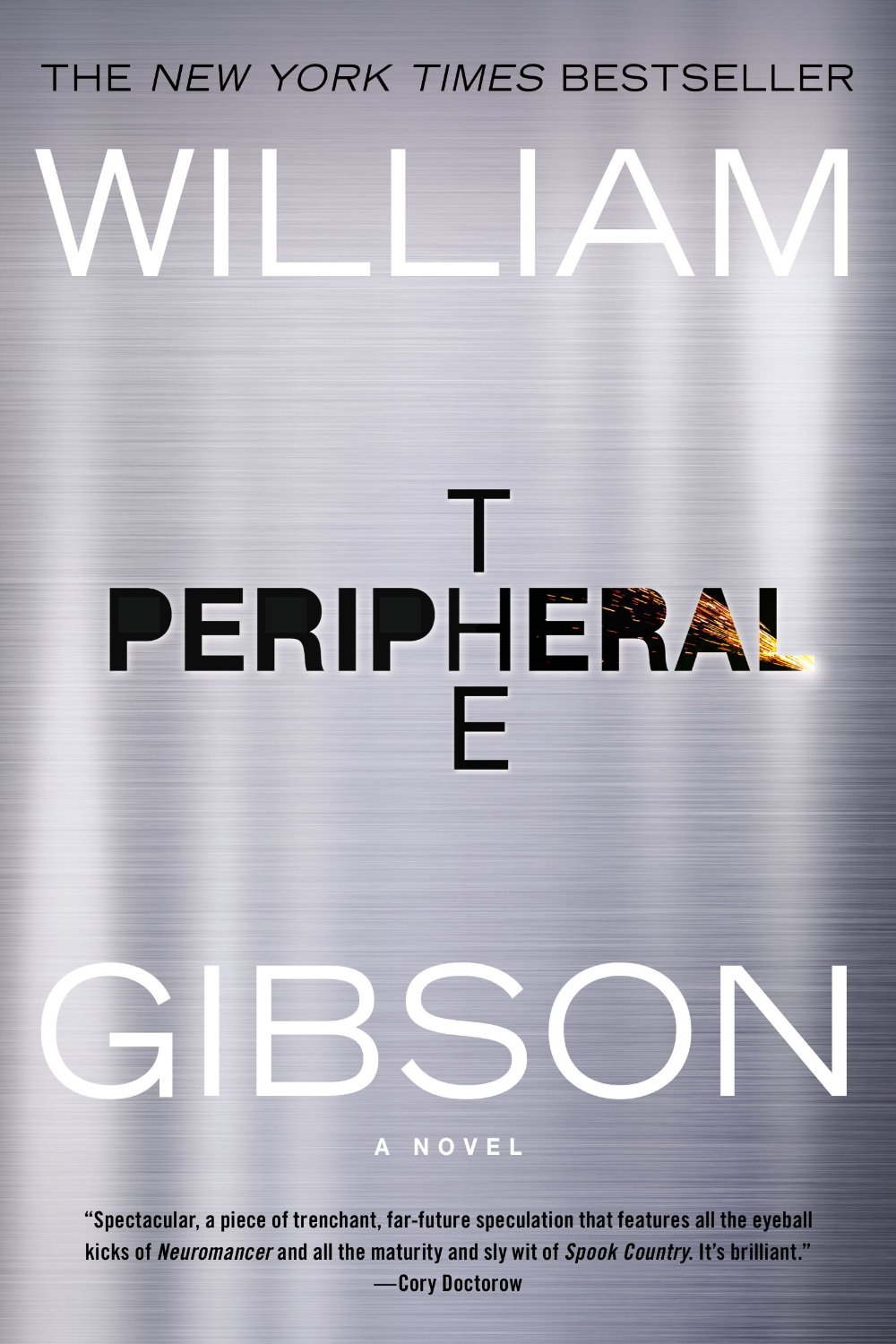Book review: “The Peripheral”

William Gibson’s latest novel, last year’s The Peripheral, is a difficult thing to approach.
I mean that literally, not metaphorically. The Peripheral is classic Gibson, visionary and daring; but it’s also a book whose first 50 pages or so are so densely packed with ideas and future-jargon that I fear many readers will find them impossible to wade through. Gibson drops you right into the deep end of The Peripheral‘s pool right from the jump, trusting that the reader is smart enough and committed enough to keep their head above water until they figure out what’s going on. It’s a brave decision, but I fear it will lead many people to give up on what’s otherwise a very good novel.
The Peripheral is told in alternating chapters from the perspectives of two protagonists. Flynne Fisher lives in a near-future American small town where the jobs have all dried up; she makes a living of sorts assembling cheap plastic crap at a 3D print shop, trying to avoid getting sucked into the undertow of the illegal drug-making economy that’s the only thing the town has resembling a growth sector. Wilf Netherton is a sort of P.R. flack living in London 70-plus years later; his living is made helping hyper-celebrities fine-tune their image and trying to keep his knack for making bad decisions from ruining his already-shaky career once and for all. Flynne’s brother Burton, an ex-Marine living on veterans’ benefits while scrabbling to make money on the side, picks up a gig doing security in a new kind of online game; one night Flynne agrees to cover a shift for him, and while doing so sees something that will bring her life and Wilf’s together in strange and unexpected ways.
Gibson’s aesthetic has always been cool and slick, black leather and burnished chrome, and The Peripheral is no different. Wilf’s farther-future London is steeped in it more than Flynne’s backwoods Recession-Americana community is, but you can see the seeds of the former being planted in the latter as you read. Gibson knows how to build dystopias that feel weirdly, unsettlingly familiar — dystopias that feel implausibly fantastic and yet somehow inevitable — and he’s at the top of his game here in that respect.
He’s also developed a pair of strong characters in Flynne and Wilf. Flynne is a spiky, angular young woman, but not in the standard cyberpunk-heroine style; she’s more country than computerized, and it shows in her preference for plain speech and direct action. Wilf is more considered and conditioned, a man whose main skills are a facility with bullshit and a willingness to contort himself into the awkward shapes necessary to fit alongside difficult people. He’s passive, but not in an uninteresting way; he comes across as a man who’s a passenger in his own life, trapped by his routines and weaknesses, but wanting desperately to break free. They’re opposites not just in time but in temperament, which makes their interactions pop and crackle.
All of which sounds pretty great, right? And it is — once you get past that beginning. Gibson has never been the type of writer who feels the need to explain his worlds; he just drops you into the middle of them, leaving it to you to find your bearings. When it’s done right this can be invigorating, but in the first chapters of The Peripheral it’s not done right. The scenes it drops you into are so unfamiliar, and the language the characters are using so cryptic, that it feels almost willfully obscure. I’m more game for this sort of thing than most readers, I think, and even I found myself tossing The Peripheral aside in frustration after the first few chapters, convinced that it wasn’t worth the effort. Reading positive reviews elsewhere convinced me to go back and try it again, and I’m glad they did; the deeper you get into it the more things fall into place, and there are several satisfying moments where things that seemed incomprehensible in the early going suddenly come into sharp focus.
So if you tried it and gave up, or were scared off by someone else’s experience of doing so, I encourage you to give it another try. It really is worth the price of admission, even if that price is steeper than it should be.
